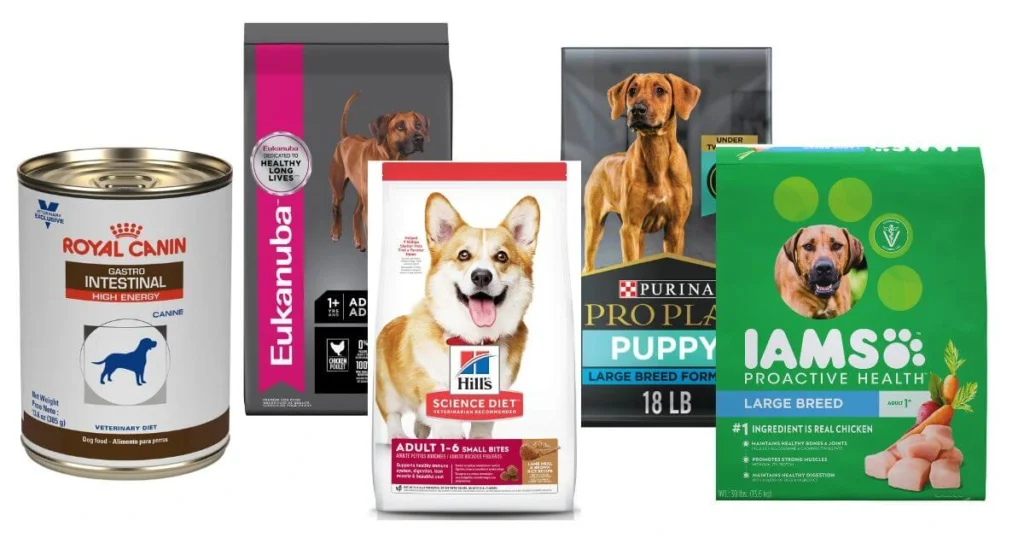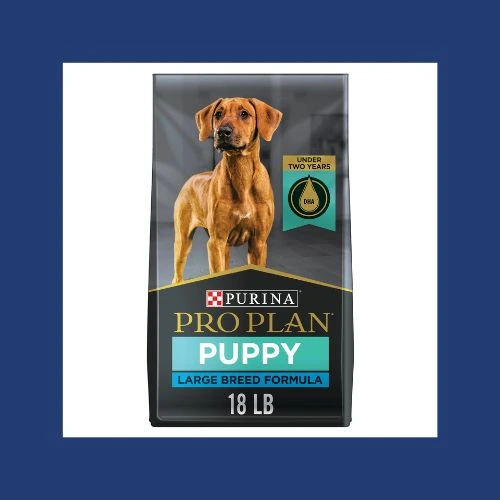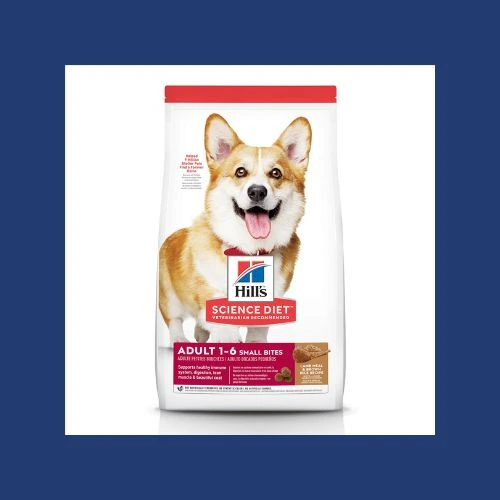The Ultimate Guide to WSAVA Approved Dog Food [2025]
Table of Contents
Understanding WSAVA Standards for Your Dog’s Nutrition
As a devoted dog parent, you want nothing but the best for your furry companion, especially when it comes to their diet. With countless dog food brands lining store shelves and dominating online marketplaces, making an informed choice can feel overwhelming. This is where WSAVA guidelines come into play, providing a science-backed framework for evaluating dog food quality.
The World Small Animal Veterinary Association (WSAVA) is a global veterinary community dedicated to advancing the health and welfare of companion animals. Unlike many self-proclaimed “premium” or “natural” brands that rely heavily on marketing rather than nutritional science, WSAVA approved dog food brands meet stringent criteria established by veterinary nutritionists and scientists.
Why does this matter? Simply put, feeding your dog a diet that adheres to WSAVA guidelines helps ensure they receive complete and balanced nutrition supported by scientific research and quality control measures. These standards go far beyond flashy packaging claims or ingredient trends.
Let’s debunk some common misconceptions right away: WSAVA doesn’t actually “approve” specific brands. Rather, they’ve established guidelines that certain manufacturers follow. Also, contrary to popular belief, many boutique brands marketed as “premium” or “natural” don’t meet these guidelines, despite their high price tags and appealing marketing.
Understanding WSAVA Guidelines: What Makes Dog Food Truly Nutritious
The WSAVA guidelines for selecting pet foods are comprehensive and science-based. To meet these standards, dog food manufacturers must satisfy several critical requirements:
Nutritional Expertise and Quality Control
WSAVA guidelines require brands to employ full-time qualified nutritionists (Ph.D. or board-certified veterinary nutritionists) who formulate their foods. This ensures that each recipe is created with expert knowledge of canine nutritional needs rather than following marketing trends.
Additionally, companies must implement rigorous quality control measures throughout their manufacturing process. This includes testing ingredients before production, monitoring during manufacturing, and evaluating finished products for nutritional adequacy and safety.
Feeding Trials: The Gold Standard
Perhaps the most significant WSAVA requirement is conducting feeding trials. Unlike theoretical nutrition calculations, feeding trials involve real dogs consuming the food over time while researchers monitor their health. These trials help ensure that dogs not only survive but thrive on the diet, with nutrients being properly absorbed and utilized.
Many brands claim their food is “complete and balanced” based solely on recipe formulation, but without feeding trials, there’s no practical evidence of how dogs actually fare on these diets.
Ingredient Quality and Sourcing
WSAVA-compliant manufacturers maintain strict control over their ingredient sourcing, selecting suppliers based on quality and safety rather than simply cost. They can provide detailed information about ingredient origins and have measures to ensure consistency between batches.
Transparency and Scientific Research
Companies meeting WSAVA guidelines readily share information about their nutritional research, manufacturing processes, and quality control. They typically invest in scientific studies, publish research in peer-reviewed journals, and contribute to advancing nutritional knowledge.
Why Many Brands Don’t Meet WSAVA Guidelines
Many popular dog food brands, especially newer boutique options, don’t meet these criteria because:
- They lack qualified full-time nutritionists
- They don’t conduct proper feeding trials
- They prioritize marketing trends over nutritional science
- They have inconsistent quality control measures
- They formulate foods based on human food preferences rather than canine nutritional needs
The Comprehensive List of WSAVA Approved Dog Food Brands (Updated March 2025)

While WSAVA doesn’t formally “approve” brands, the following manufacturers consistently meet WSAVA guidelines based on their nutritional expertise, quality control, research capabilities, and feeding trial protocols:
Large-Scale Manufacturers
- Purina Pro Plan
- Puppy formulas: Focus Puppy, Savor Puppy, Sport Puppy
- Adult formulas: Sensitive Skin & Stomach, Sport, Focus Weight Management
- Senior formulas: Bright Mind 7+, Complete Essentials Senior
- Official website
- Royal Canin
- Breed-specific formulas: Over 80 breed-tailored options
- Veterinary diets: Gastrointestinal, Hydrolyzed Protein, Urinary SO
- Size-specific formulas: X-Small, Small, Medium, Large, Giant
- Official website
- Hill’s Science Diet
- Puppy formulas: Small Paws, Large Breed, Perfect Digestion
- Adult formulas: Perfect Weight, Sensitive Stomach & Skin
- Senior formulas: 7+ Vitality, Small Paws Senior
- Official website
- Eukanuba
- Puppy formulas: Small, Medium and Large Breed options
- Adult formulas: Breed-specific and weight control options
- Senior formulas: Senior Maintenance, Senior Large Breed
- Official website
- Iams
- Puppy formulas: ProActive Health Puppy, Healthy Puppy
- Adult formulas: ProActive Health, Minichunks, High Protein
- Senior formulas: Mature Adult, Senior Plus
- Official website
Special Dietary Needs
Each of these manufacturers offers specialized formulas for dogs with specific health conditions:
- Weight Management: Hill’s Science Diet Perfect Weight, Purina Pro Plan Weight Management
- Sensitive Digestion: Royal Canin Gastrointestinal, Purina Pro Plan Sensitive Stomach
- Food Allergies: Hill’s Prescription Diet z/d, Royal Canin Hydrolyzed Protein
- Joint Health: Purina Pro Plan Joint Mobility, Hill’s Science Diet Mobility
Detailed Reviews and Comparisons
Purina Pro Plan Sensitive Skin & Stomach Salmon Formula

Key Features:
- First ingredient is real salmon
- Contains prebiotic fiber for digestive health
- No corn, wheat, or soy
- Includes omega fatty acids for skin and coat health
Nutritional Analysis:
- Protein: 26% (supports muscle maintenance)
- Fat: 16% (balanced energy source)
- Fiber: 4% (promotes digestive health)
Veterinary Perspective: “I frequently recommend this formula for dogs with mild digestive sensitivities. The salmon protein is highly digestible, and many dogs show improved stool quality and reduced skin issues after switching.” – Dr. Sarah Jenkins, DVM
Price: $$-$$$ (mid-range premium)
Royal Canin Size Health Nutrition Medium Adult

Key Features:
- Tailored for medium-sized dogs (23-55 lbs)
- Specific kibble shape and size for medium breeds
- Contains antioxidant complex for immune support
- Balanced fiber blend for digestive health
Nutritional Analysis:
- Protein: 23% (maintenance level for adult dogs)
- Fat: 12% (controlled for healthy weight)
- Fiber: 3.2% (optimal for regular digestion)
Veterinary Perspective: “Royal Canin’s size-specific approach addresses the subtle differences in metabolism and jaw structure between different sized dogs. The medium adult formula provides appropriate calorie density and kibble size for typical medium breeds.” – Dr. Michael Chen, DVM, Ph.D.
Price: $$$-$$$$ (premium pricing)
Hill’s Science Diet Adult Perfect Digestion

Key Features:
- Contains ActivBiome+ ingredient technology
- Prebiotic fiber to fuel gut bacteria
- Includes ginger to help reduce nausea
- No artificial colors, flavors, or preservatives
Nutritional Analysis:
- Protein: 24% (digestible sources for sensitive stomachs)
- Fat: 14% (moderate level for easy digestion)
- Fiber: 4.5% (higher fiber content for digestive health)
Veterinary Perspective: “Hill’s newer ActivBiome+ technology shows promising results for dogs with chronic soft stools or irregular bowel movements. The blend of prebiotic fibers helps establish healthier gut flora over time.” – Dr. Lisa Thompson, Veterinary Nutritionist
Price: $$$-$$$$ (premium pricing)
Expert Opinions on WSAVA Guidelines and Dog Food
We interviewed several veterinary professionals to get their insights on WSAVA guidelines and dog nutrition:
Dr. Jennifer Adams, DVM, DACVN (Diplomate of the American College of Veterinary Nutrition): “The WSAVA guidelines represent the minimum standards we should expect from pet food companies. They emphasize the importance of scientific formulation, quality control, and feeding trials—aspects that many boutique brands simply don’t address. While ingredient lists get all the attention from consumers, they’re actually one of the least reliable ways to judge pet food quality.”
Dr. Robert Collins, Veterinary Nutritionist: “Many pet owners are surprised to learn that the brands that best meet WSAVA guidelines are often the larger, more established companies rather than the boutique brands marketed as ‘premium.’ This is because these companies have the resources to employ full-time nutritionists, conduct feeding trials, and invest in research. The best dog food isn’t determined by what sounds appealing to humans—it’s what provides complete nutrition and has been proven to support health through proper testing.”
Dr. Maria Garcia, Holistic Veterinarian: “While I take a more integrative approach to pet health, I still recognize the importance of foods meeting basic nutritional standards. The WSAVA guidelines help ensure safety and nutritional adequacy. Some owners may choose to supplement WSAVA-compliant commercial diets with fresh foods, which can be done safely with professional guidance.”
User Reviews and Testimonials
Sarah P., owner of Luna (Labrador Retriever): “After trying countless ‘grain-free’ and ‘all-natural’ brands that left Luna with recurring diarrhea, our vet recommended switching to Purina Pro Plan Sensitive Skin & Stomach. The difference was dramatic—solid stools within days and her coat became noticeably shinier after a few weeks. I wish I hadn’t fallen for the marketing and had trusted veterinary science sooner.”
Marcus T., owner of Baxter (Boston Terrier): “Baxter was extremely picky until we tried Royal Canin’s breed-specific Boston Terrier food. The kibble shape is perfect for his flat face, and he actually gets excited at mealtime now. His energy levels have improved too.”
Jessica R., owner of senior dog Max (Mixed breed): “After Max turned 10, he started slowing down considerably. Our vet recommended Hill’s Science Diet 7+ Active Longevity, and within a month, he was more playful and alert. The senior-specific nutrition really does make a difference.”
Frequently Asked Questions About WSAVA Approved Dog Food
Are WSAVA-compliant brands the only good dog foods?
While WSAVA guidelines provide excellent standards for ensuring nutritional adequacy and safety, they aren’t the only measure of quality. However, they do represent important scientific and quality control benchmarks that help separate evidence-based nutrition from marketing hype.
Why are many boutique “natural” brands not meeting WSAVA guidelines?
Many smaller companies lack the resources to employ full-time board-certified nutritionists, conduct feeding trials, and invest in research. Instead, they often focus on marketing appealing ingredients to humans rather than formulating based on canine nutritional science.
Where can I purchase WSAVA-compliant dog food?
Most WSAVA-compliant brands are widely available at pet stores, veterinary clinics, major retailers, and online. Some veterinary-exclusive formulas may only be available through your veterinarian.
What if my dog doesn’t like these brands?
Each WSAVA-compliant manufacturer offers numerous formulas with different protein sources, textures, and flavors. If your dog doesn’t enjoy one option, try another variety within the same brand or a different WSAVA-compliant brand. Gradual transitions are recommended to prevent digestive upset.
Is grain-free better for my dog?
Contrary to popular marketing, grain-free diets haven’t been proven beneficial for most dogs and have actually been associated with a serious heart condition called dilated cardiomyopathy (DCM) in some cases. Unless your dog has a diagnosed grain allergy (which is rare), there’s no scientific reason to avoid grains in dog food.
Conclusion: Making the Best Choice for Your Dog
Choosing the best dog food for your furry companion doesn’t have to be overwhelming. By understanding WSAVA guidelines and focusing on brands that prioritize nutritional science over marketing trends, you can make an informed decision that supports your dog’s long-term health.
Remember that the best food for your dog is one that:
- Meets WSAVA guidelines for nutritional expertise, quality control, and testing
- Results in good stool quality, healthy skin and coat, and appropriate energy levels
- Your dog willingly eats and maintains a healthy weight on
- Is recommended by your veterinarian based on your dog’s specific needs
While WSAVA-compliant brands may not always have the most appealing packaging or trendy ingredients, they offer something far more valuable: nutrition backed by science, research, and quality control measures that help ensure your dog receives the complete and balanced diet they need to thrive.
Always consult with your veterinarian about your dog’s specific nutritional needs, especially if they have health conditions requiring dietary management.

